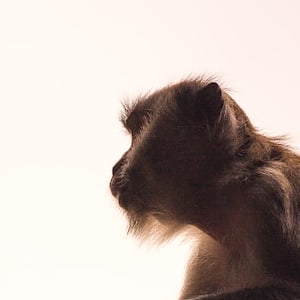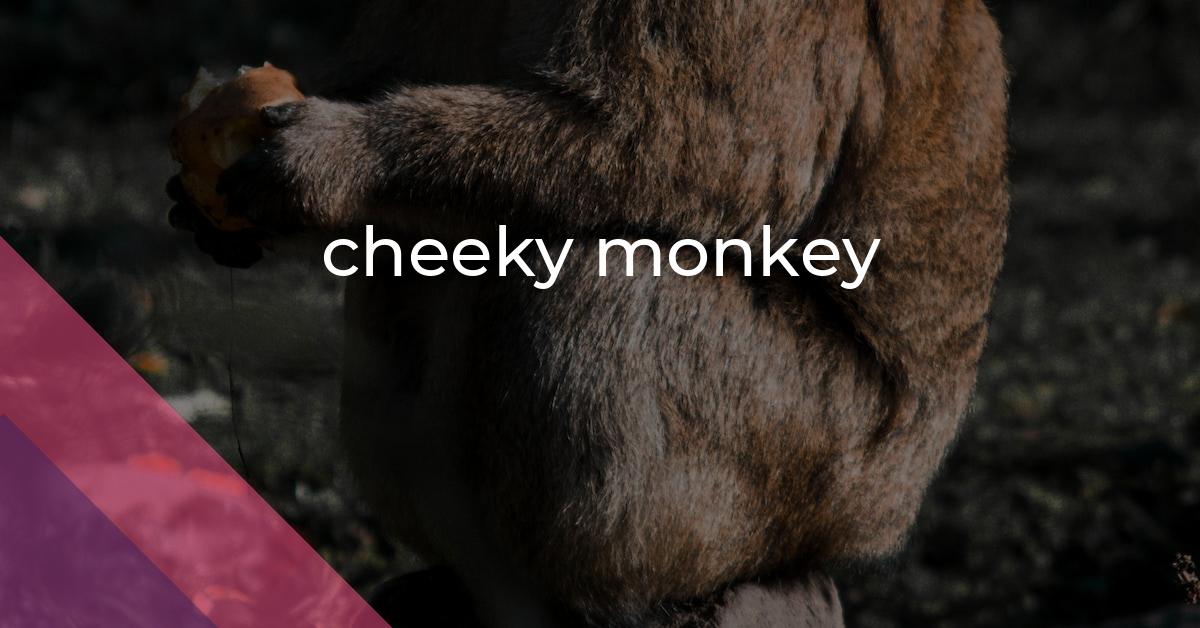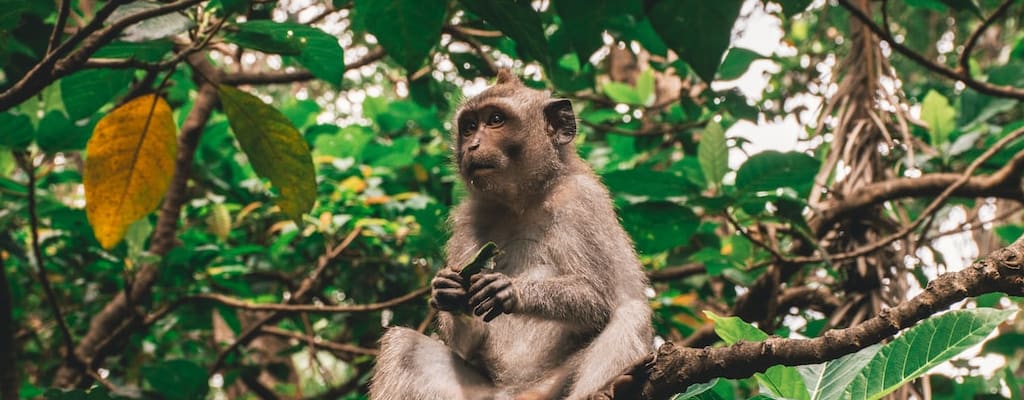cheeky monkey: Idiom Meaning and Origin
What does ‘cheeky monkey’ mean?
The idiom "cheeky monkey" refers to someone, usually a child, who is mischievous or impudent. It implies a playful and somewhat naughty behavior, often accompanied by a sense of amusement rather than anger or annoyance.

Idiom Explorer
The idiom "monkey business" refers to mischievous or dishonest behavior, often involving pranks or tricks. It is used to describe actions that are not serious or professional.
*kid around*
(idiomatic) To engage in playful or lighthearted joking or teasing; to not be serious.
The idiom "itchy trigger finger" is used to describe someone who is easily provoked or quick to react, especially with aggression or violence.
The idiom "I'll be a monkey's uncle" is an expression used to convey surprise or disbelief. It suggests that the speaker never expected the situation or outcome to happen.
The idiom "honey-mouthed" refers to someone who speaks in a sweet or flattering manner, often insincerely or with the intention of manipulating others.
A "grease monkey" is a slang term for a mechanic, often used to refer to someone who works on cars or machinery. The term stems from the association of mechanics with getting dirty and using grease while working.
The idiom "go rogue" means to act in a rebellious and unpredictable manner, disregarding rules or expectations. It refers to someone who goes against the established norms or authority, often causing disruption or chaos.
The idiom "funny stuff" refers to something that is amusing, quirky, or strange. It is often used to describe situations, actions, or remarks that are humorous or out of the ordinary.
The idiom "funny man" refers to someone who is humorous or comical. It is commonly used to describe a person who has a knack for making others laugh.
Mischievous Origins
The idiom "cheeky monkey" is a familiar and colloquial expression used to describe someone, often a child, who exhibits mischievous or impudent behavior. This idiom is a playful and catchy way to convey the idea of audacity and boldness in a lighthearted manner.
The phrase "cheeky monkey" is considered to be a metaphorical idiom, combining the words "cheeky" and "monkey" to signify a person who is impudent and mischievous. The word "cheeky" describes someone who is audacious, impudent, or boldly disrespectful, while "monkey" represents a playful and sometimes unpredictable creature.
This idiom, which originated in British English, has gained popularity and recognition globally. Its usage can now be found in various English-speaking countries, including the United States, where it has become a colorful and playful way to describe someone's mischievous or impudent actions.
One possible explanation for the origin of the idiom "cheeky monkey" is the association of monkeys with playfulness and mischievous behavior. Monkeys are known for their lively nature and playful antics, which align with the idea of audacity or impudence exhibited by someone described as "cheeky."
The idiom "cheeky monkey" has been widely attested in British English since the mid-20th century. Its early usage can be found in literature, humor, and popular culture, particularly in reference to children or individuals who display a rebellious yet playful nature.
Now, let's explore how "cheeky monkey" is related to two other idioms - "monkey business" and "barrel of monkeys".
The idiom "monkey business" is used to describe activities or behavior that is dishonest, deceitful, or frivolous. The idiom suggests that the behavior is as chaotic and unpredictable as the antics of mischievous monkeys. While "cheeky monkey" focuses more on audacity and impudence, "monkey business" emphasizes the deceitful and dishonest aspect of misbehavior.
On the other hand, "barrel of monkeys" is an idiom that conveys a sense of fun, excitement, and enjoyment. It refers to a situation or activity that is incredibly enjoyable and entertaining. The idiom draws upon the image of a barrel full of playful monkeys, suggesting a high level of energy, amusement, and camaraderie. Unlike "cheeky monkey" and "monkey business", "barrel of monkeys" does not carry the negative connotations of audacity or deceit.
It's fascinating to see how these idioms involving monkeys have different nuances and convey distinct meanings. While "cheeky monkey" focuses on mischievous boldness, "monkey business" emphasizes dishonesty, and "barrel of monkeys" evokes a sense of enjoyment and amusement.
The idiom "cheeky monkey" is a playful and catchy way to describe someone, often a child, who displays mischievous or impudent behavior. It has gained popularity and recognition globally, extending beyond its original British context. The idiom is related to other monkey-themed idioms, such as "monkey business" and "barrel of monkeys", which offer different perspectives on misbehavior and enjoyment.
Example usage
Examples of how the idiom cheeky monkey can be used in a sentence:
- She couldn't help but laugh when her little brother stole a cookie and ran away with a cheeky monkey grin on his face.
- During the school assembly, a cheeky monkey disrupted the performance by stealing the microphone and making silly noises.
- The comedian was known for his cheeky monkey behavior on stage, always making playful jokes and teasing the audience.
More "Animals" idioms



